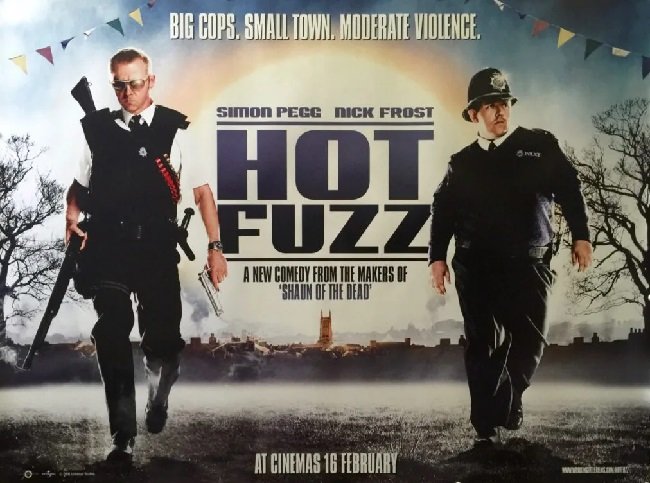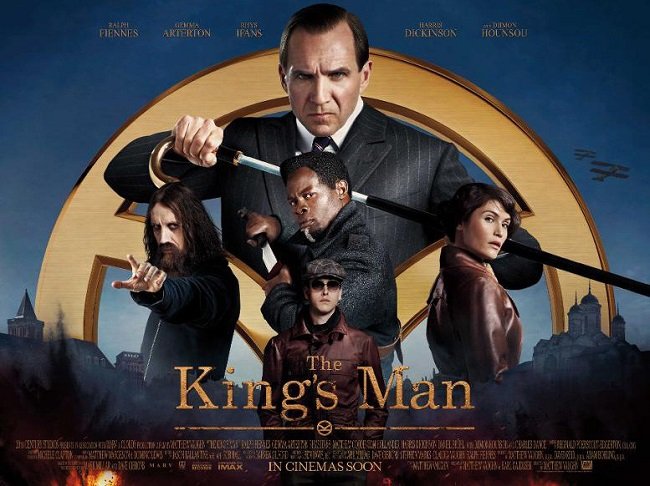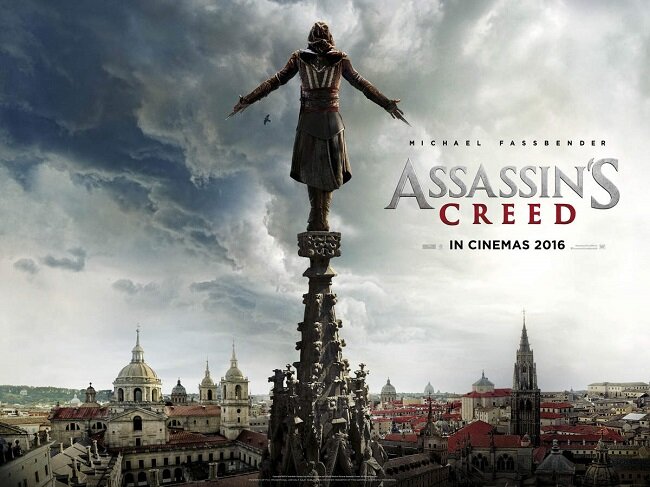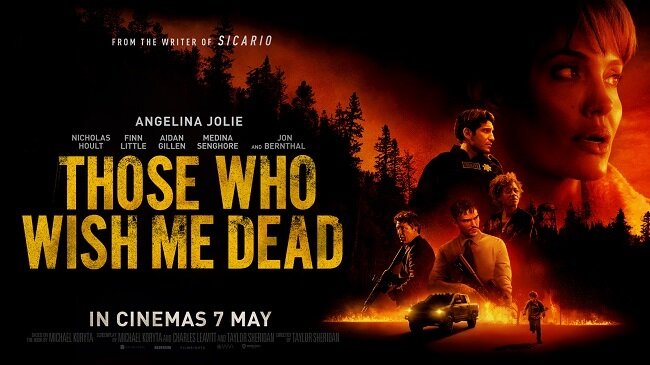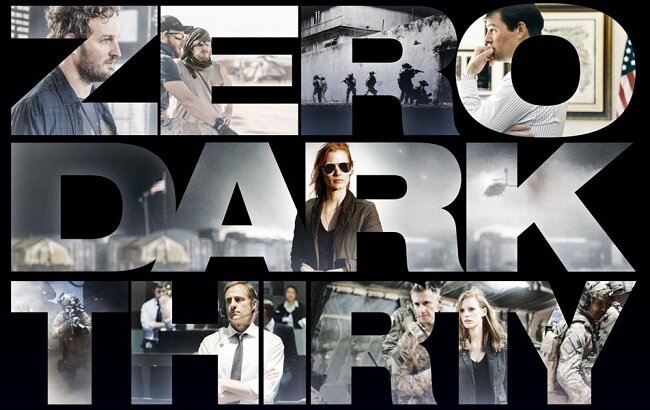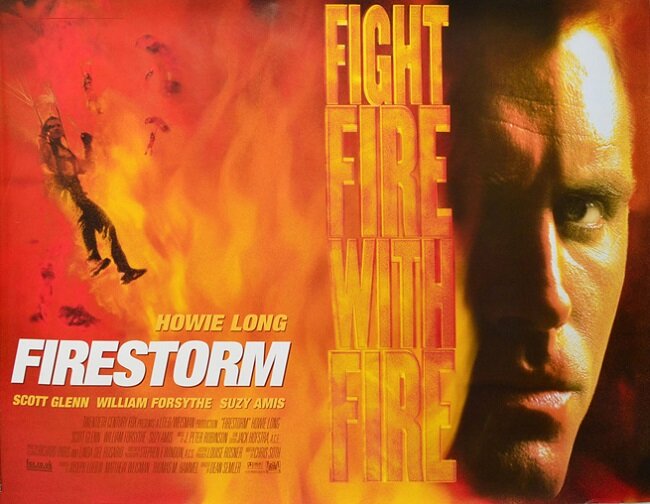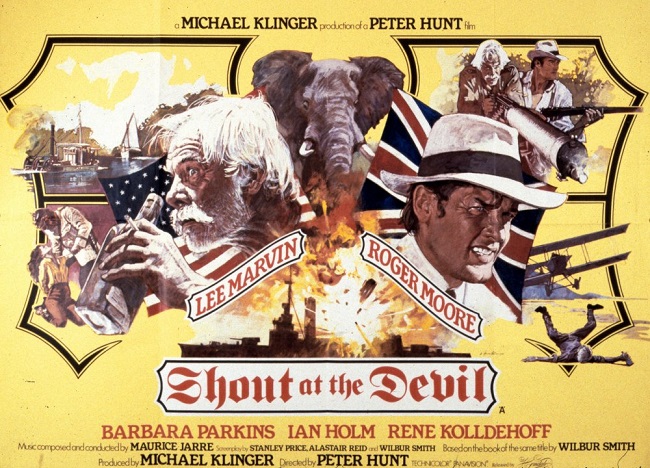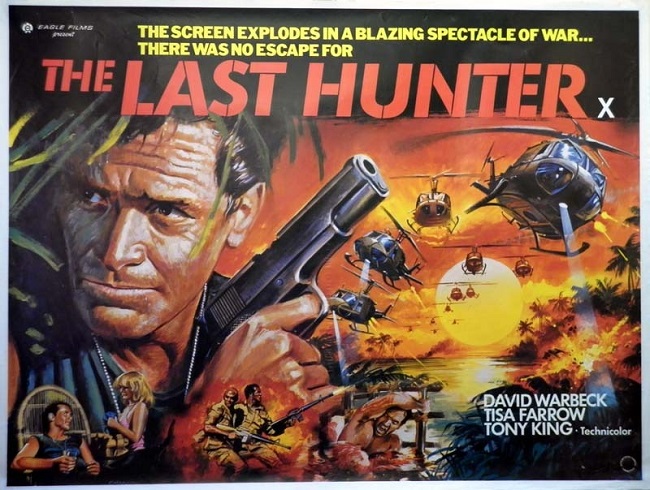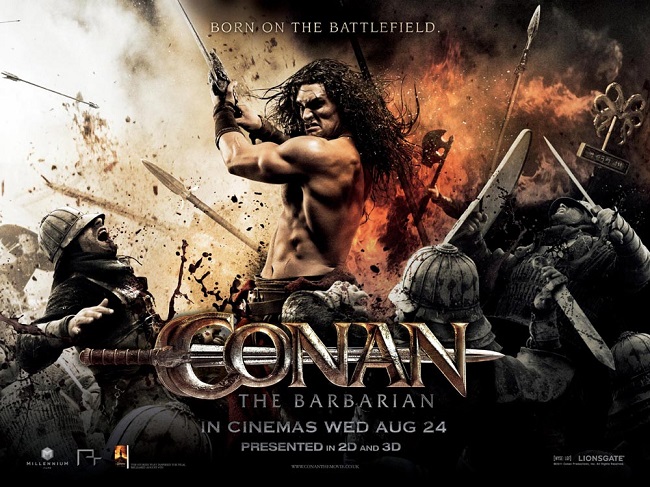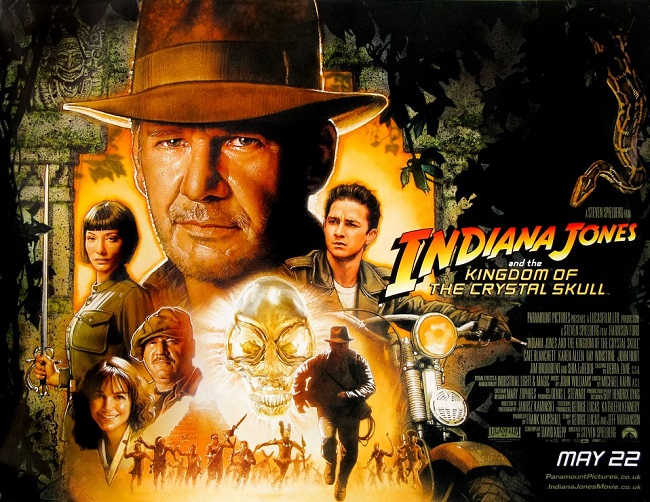Assassin’s Creed (2016)
On paper, a video games franchise such as Assassin’s Creed lends itself perfectly to a cinematic adaptation. The parkour action scenes, the historical settings and the contemporary conspiracy theory themes are all elements that should play well with a modern youth audience. Hence with the backing of a major studio such as Twentieth Century Fox and a budget of $125 million, the 2016 movie should have been a guaranteed box office hit. The casting of Michael Fassbender, an actor who is comfortable with serious roles and big Hollywood franchises, should have carried this film comfortably over the finishing line. Director Justin Kurzel, who had found critical success with his adaptation of MacBeth a year previously, must have looked like a safe pair of hands to handle such a project. Sadly, that was not the case. Assassin’s Creed is not the sum of its parts, in fact many elements appear to be pulling in opposite directions. The resulting feature film is staggeringly dull, soulless and a chore to watch. A testament to how modern big budget franchise movies have become a production line, with all the art stripped from them.
Convicted murder, Callum Lynch (Michael Fassbender), is sentenced to death by lethal injection in a prison in Texas. He awakes from his execution to find himself very much alive and in a high tech research laboratory in Madrid, run by the Abstergo Foundation and its sinister CEO Alan Rikkin (Jeremy Irons). Dr. Sofia Rikkin (Marion Cotillard) explains to Cal that she wishes to access inherited memories hidden in his DNA, of his ancestor Aguilar de Nerha, who was a member of the Assassins Brotherhood in 15th Century Spain. Abstergo Industries is actually funded and controlled by the Templars, an ancient order that has been at war with the Assassins Brotherhood for centuries. They seek the Apple of Eden, an artefact that holds the code to humanity’s ability for free will, which they seek to control. Cal is placed in the Animus, a machine which allows him to relive (and the scientists to observe) Aguilar's genetic memories, so that Abstergo can learn what he did with the Apple. Aguilar was previously charged with protecting the artefact from Templar Grand Master Tomas de Torquemada.
Within minutes of the film’s opening sequence which is set in 1492 Andalusia, the muddy colour palette and swooping camera it becomes clear that Assassin’s Creed has been shot using all the visual styles and editing techniques that are currently in vogue. It is the sort of movie where all concerned are far more enamoured by the aesthetic they have created rather than presenting the audience with a coherent and engaging narrative. Naturally, the production design and visual effects are top draw as you would expect from a mainstream film with this sort of budget. Yet the entire movie is presented in a singularly unappealing fashion and unfolds in a ponderous manner. The colours are muted, the camera refuses to stay still, inducing a sense of motion sickness. The editing is so rapid it often renders the onscreen action incomprehensible and the imagery strikes hard upon the senses. It is also clear that the film has chosen this technique to mask and reduce the levels of violence, so it can maintain the desired PG-13 rating.
There are three writers credited with the screenplay for Assassin’s Creed. Michael Lesslie, Adam Cooper and Bill Collage. Yet despite their efforts the story is perfunctory and the central characters are utterly forgettable. Action movies never used to be like this. In 1981 Raiders of the Lost Ark featured a wealth of interesting, enjoyable characters and the screenplay was savvy, filled with knowing genre references and droll, hard boiled dialogue. There is none of that here and a cast of solid actors are saddled with the most arbitrary of expository dialogue. Brendon Gleason has a cameo as Michael Fassbender’s Father. The relatively short role is supposed to provide an emotional epiphany within the story and create a sense of pathos but it is devoid of any dramatic resonance. It simply serves as an expostionary scene to move the story on. As for the more philosophical aspects of the plot regarding free will and determinism, these are abandoned immediately after they are mentioned.
Assassin’s Creed offers several clear nods to its source material. The costume design, hidden blades, parkour and historical setting certainly tap into the vibe of the first two games. The realisation of the Animus is also creative. Yet irrespective of the money and talent that is involved in the production, the film is staggeringly unexciting. In many ways it is a textbook example of all the artistic failings of corporate film making these days. Too much of our popular entertainment, be it music, TV or film are generic and made to an established formula. 40 years ago summer blockbusters were not only commercially successful but artistically created with flair and panache. The homogenous nature of their modern counterparts robs them of any unique personality of their own. For example, Assassin’s Creed runs for nearly 2 hours and features a musical score by Jed Kurzel that is essentially forgettable. I still recall the impact that James Horner’s soundtrack for Krull (1983) had upon me when I first saw it and it remains a personal favourite all these years later
Assassin’s Creed made a total profit of $240,697,856 internationally. It nearly doubled its investment yet was deemed a box office failure by those that financed it. A similar mindset is prevalent in the video game industry. Expectations regarding profit are often ambitious to say the least. Considering how poor the final movie is, I suspect that the entire project was a litany of continuous interventions by focus groups and sub-committees. So in many ways the studios are the architects of their own problem. To those who have a serious interest in cinema and are curious to see an example of when a film inherently fails on all levels, I would recommend Assassin’s Creed as a point of study. Beyond this niche market analysis, I cannot think of any positive points for the benefit of the casual viewer. Avid fans of the games will more than likely be disappointed as there is no exploration of their themes beyond the very superficial. Perhaps the failure of Assassin’s Creed will at least encourage the industry to rethink its approach to such movies and the wider action genre.





